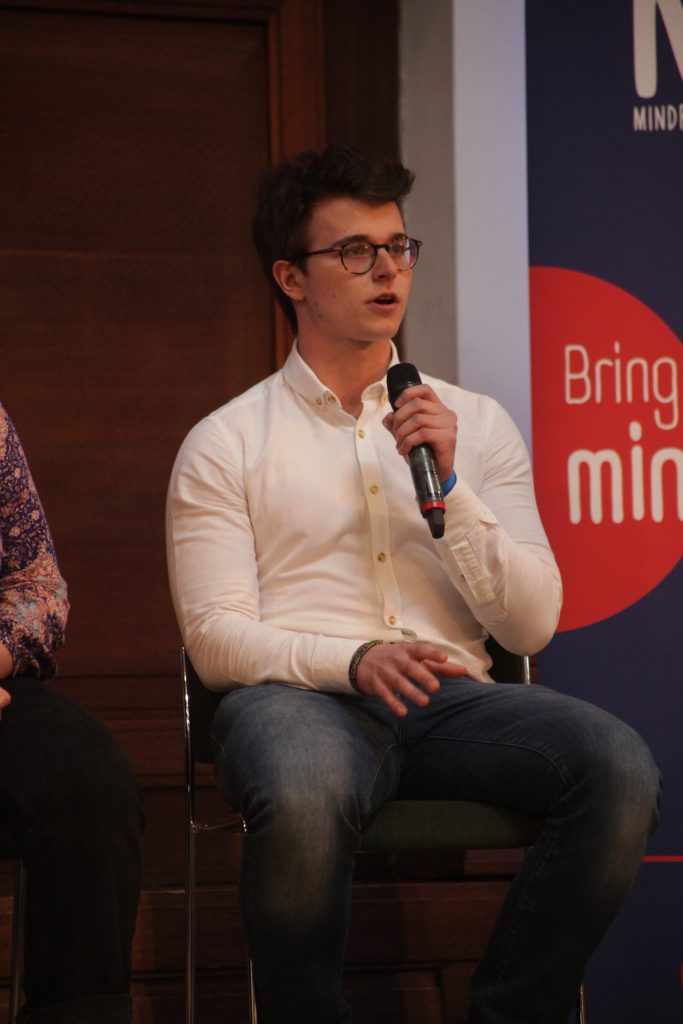
Luke is a History graduate from the University of Cambridge. He is about to start a Master’s degree in Film at the University of Amsterdam …
How did you first learn about mindfulness?
“I was taught the .b curriculum in Year 10 at my school, and became more heavily involved in mindfulness as I got older. I ended up being joint secretary of the Mindfulness Society at university, and helping out at the 2015 MiSP conference.”
How does mindfulness help you?
“I could say I’ve practiced every day for an hour, but sadly that would not be entirely true. At university I would practice when I had the chance: but for a large proportion of my time studying, a combination of sleep deprivation, stress and various academic pressures made it difficult to live mindfully. Crucially, however, this absence of mindfulness was always at the periphery of my mind – a constant awareness that if I did manage to take some time out, to prioritise my wellbeing through stopping and breathing, things could be a lot better. No word of a lie, ‘do more mindfulness’ has been my new year’s resolution for the last four, and I would usually keep it for a few months, until work began to pile on.
However, there has been one notable exception to this general absence of mindfulness: that is at points of hyper-intense stress. The only time of the year you’d be guaranteed to see me eyes closed, breathing softly in the library, would be in exam term. I generally don’t like the idea of mindfulness as a means rather than an end in itself, but I do genuinely credit a huge amount of getting through exams, to mindfulness. Indeed, on a more generic mental health level, I don’t think I could have made it through Cambridge without it. And mindfulness hasn’t just saved my skin during academic stress – before sports competitions or races, while volunteering in Tanzania in 2017, while dealing with medical issues, it is incredibly comforting to know that if my back’s against the wall, mindfulness is there to offer me a quiet place and a moment of peace.”
Why do you want to be a MiSP Youth Ambassador?
“For the past year I’ve been researching for and creating a documentary about mental health at Cambridge University. Feeling Blue? had its first screening in early May. I have been horrified by the statistics. On the extreme level, the UK has the highest self-harm rates in Europe, and a university student in the UK takes their own life every 4 days. On a wider level, 1/4 young people feel “hopeless”, while 3/5 regularly stress about jobs and money. It’s safe to say that young people are at the precipice of a crisis with both mental health, and general wellbeing.
Mindfulness won’t cure all these problems – far from it, the UK needs fundamental socio-economic and healthcare reform in order to survive sustainably – but I truly believe it can help in two crucial ways. First, on a purely practical level, if every young person was a mindfulness practitioner, a large proportion of them would find as I have that among the stressors and difficulties, they a quiet place and a moment of peace is never far away, and can offer a vital safe-haven in a moment of crisis. And second, once this mindful generation grows up, it is likely to rebuild the world in a more empathetic, more hopeful, more mindful mould. And that, I believe, would be a very good thing.”